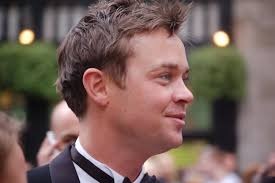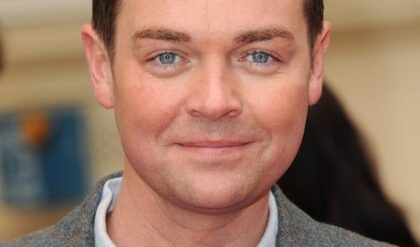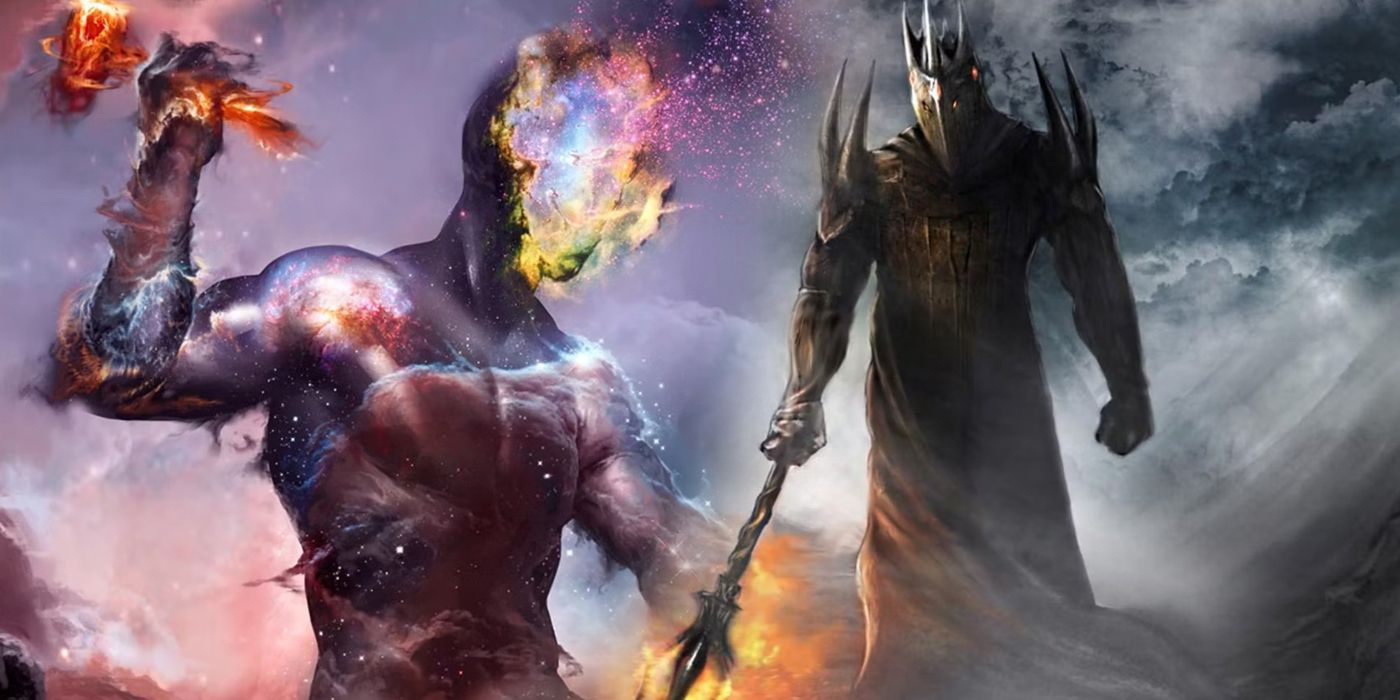
The Tolkien family resisted adaptation for years, with the Ralph Bakshi rotoscoped animated movies and The Hobbit animated movie being all fans had until 2001. Fellowship Of The Ring, The Two Towers, and Return Of The King became blockbuster films, and LOTR became a massive franchise. For fans of just the movies, Tolkien created a whole world of powerful beings and godlike characters who didn’t appear in the movies.
Oromë Was the First To See the Elves
He Helped Them Travel To Valinor
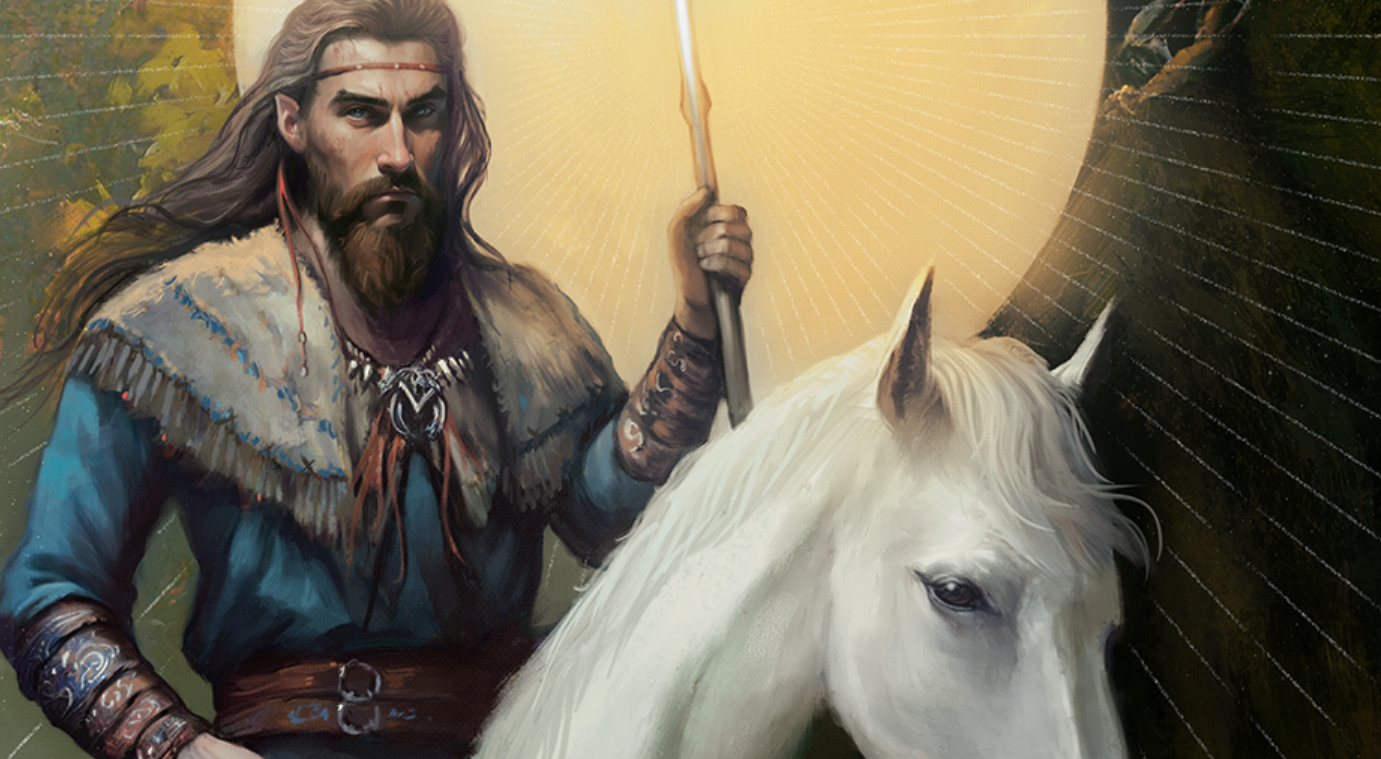
In Tolkien’s mythology, the Valar were powerful beings with godlike abilities, but who were not actual gods, though they had divine attributes and powers similar to a pantheon of gods. They were more like emissaries or guides to the people of Middle-earth, acting on behalf of Illúvatar, the one God over Middle-earth. The Valar had attributes that gave them a kind of sovereignty over certain acts or emotions. In this way, Tolkien created his world through both a pagan and Christian framework.
One of the powerful Valar is Oromë. Like Tulkas, Oromë was a hunter who loved the forests that were the province of Yavana. He loved dogs and hunting, and while he was good, he had a temper that no one wanted to cross. Oromë is significant because he was the last of the Valar to return to Valinor after shaping the world of Middle-earth. He was the Vala who found the Elves after they had awakened, and he guided those willing to come to Valinor. Oromë was an imposing fighter and Tolkien writes in The Return of the King that King Théoden displayed a ferocity comparable to Oromëin the Battle of Pelennor Fields.
Nienna Was the Vala Of Grief
Sorrow Is Intertwined With Middle-earth
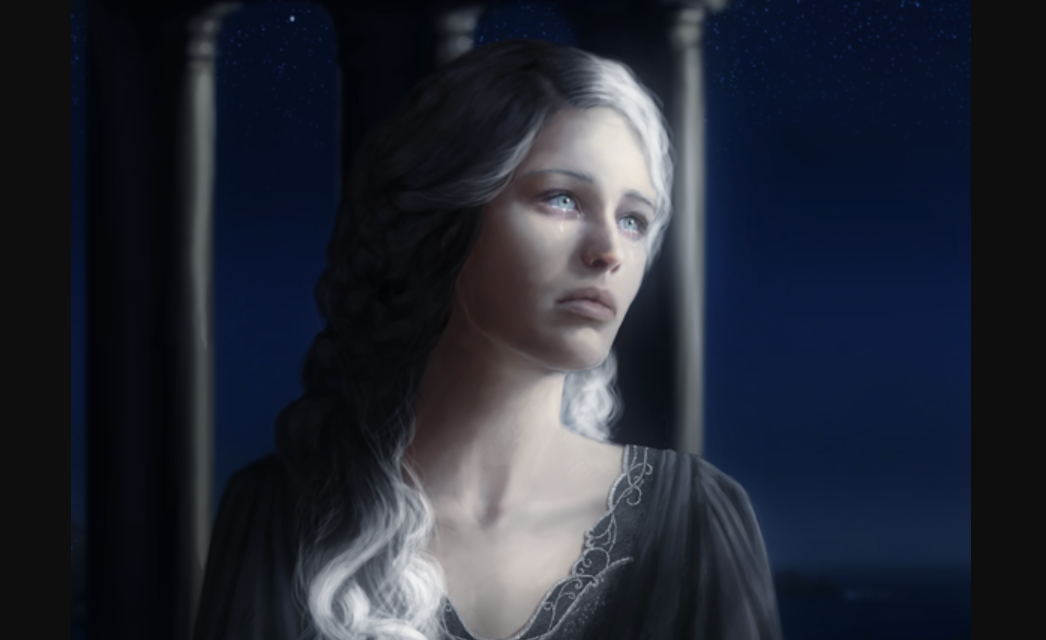
Nienna is sometimes called the Lady of Mercy. She was the Vala who mourned acutely all the damage that Melkor did when he fell from the Valar and later enacted revenge against them and Illúvatar in Valinor. That there is a Vala dedicated to grief, sorrow, pity, and courage, says a lot about Tolkien’s world and why so many stories told in The Silmarillion are tragic. In both the movies and the books, fans get a sense that the characters find strength in the tales of Middle-earth because they are so sad. It gives them the strength to endure the hardships they go through.
So, while Nienna seems to have played a minor role among the Valar, her attributes had a key role in major events. Because of her pity, Nienna was one of the few Valar who wanted to pardon Melkor after his three ages of imprisonment. Eventually, the Valar agreed to do so, but it led to Melkor’s greatest deception and the destruction of The Two Trees of Valinor. Appropriately, Nienna wept over the ground when the Trees were planted, and she wept over the same spot after the Trees were destroyed by Ungoliant. Her tears had the effect of cleansing the ground of Ungoliant’s venom.
Melian Was a Maia Took a Physical Form
She Married Thingol And Lived In Doriath
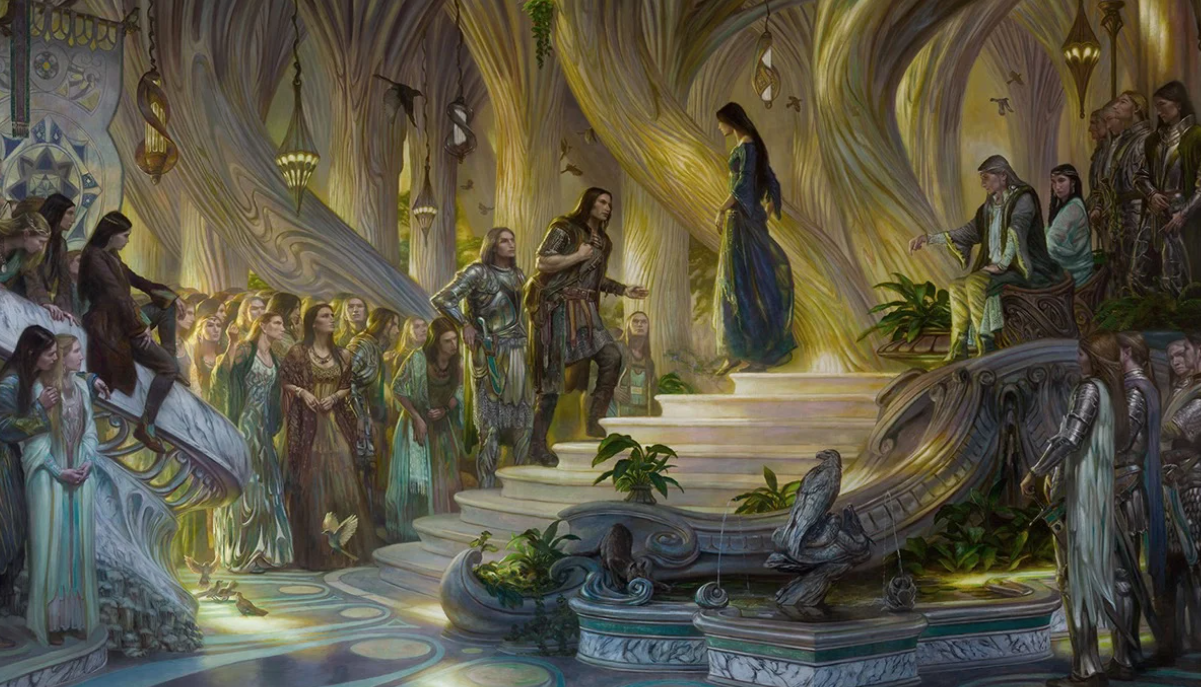
Melian was one of the Maiar, beings of power who were like angels and served the Valar. In Valinor, Melian was in the service of Vána and Estë and she spent much of her time in the Gardens of Lórien, tending to the trees. Her love of trees drew her into the world where she dwelled in the dark forests there. It was there that the elf, Thingol, came upon her. The two held hands and stood entranced in each other’s presence for years before they finally established a kingdom in Doriath and gathered to themselves many of the elves who had remained in Middle-earth.
As Queen, Melian was gifted with prophecy and involved in counseling Thingol in key decisions, and it was her power that kept evil from entering Doriath. While Melian’s name will be unfamiliar to fans of the movies (and those of the books who haven’t read The Silmarillion), she had an impact on characters important to the story. Melian was a mentor to Galadriel, teaching her wisdom, lore, and how to make lembas or waybread. She was also the mother of Lúthien, the Elf who gave her love the human, Beren. Fans of Fellowship of the Ring will recognize those two names as being important to Aragorn who is overheard by Frodo singing The Lay of Lúthien in the Midgewater Marshes.
Glaurung Was a Deceitful Dragon, Close To Melkor
He Brought the Downfall Of the Children of Húrin
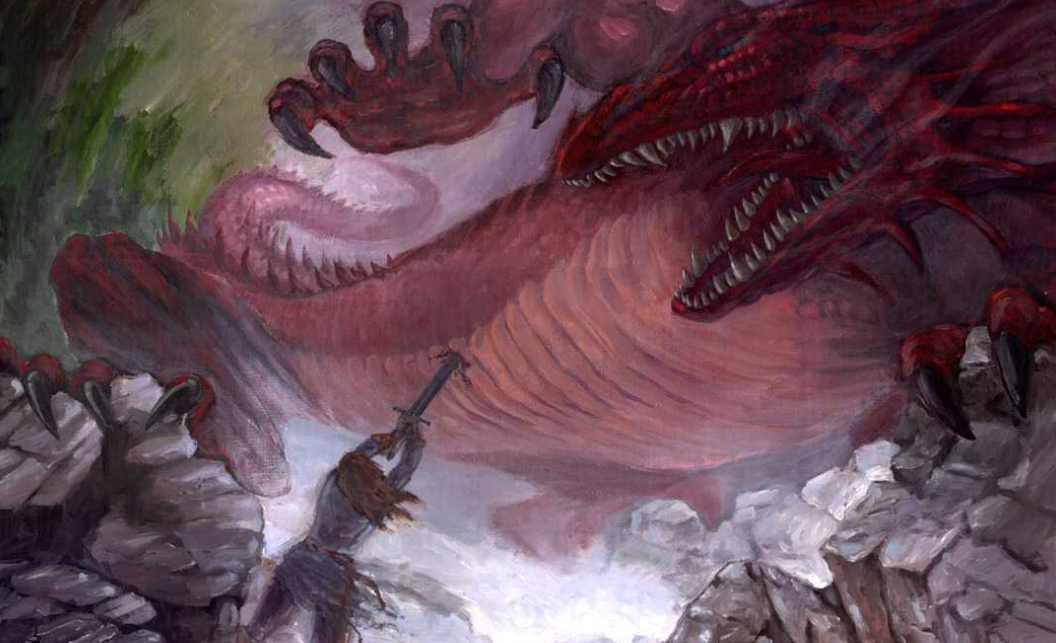
Dragons go back to the Melkor, who fled Valinor after destroying The Two Trees with the help of Ungoliant. At some point while building up his strength in Middle-earth, Melkor (who was later called Morgoth by the elves) created dragons and used them to lead his armies. Galurung was just such a dragon, who was powerful, deceitful, and full of evil. Glaurung led the Balrogs and other dragons in key battles and he is referred to as the Father of Dragons, though whether that is literal or metaphorical is unclear since Glaurung didn’t have wings but later members of his “brood” did.
Glaurung was strong and vicious and was primarily responsible for the downfall of Nargothrond, which is where he first confronted Túrin, son of Húrin, and put his sister Nienor under a spell that erased her memory. Nienor was born after their mother had sent Túrin away to safety in Doriath, so he did know of her existence. And although she knew of Túrin, she had no memory because of Glaurung’s spell. When Túrin found her, he fell in love with her and the two eventually married. Later, when Túrin overcame Glaurung, the dragon told Nienor with his dying breath that she had married her brother. With his death, her memory was restored, and she recalled his name and knew it was true. First Nienor, then Túrin committed suicide because of this.
Aulë Created The Dwarves
He Was Impatient For the Coming Of the Elves
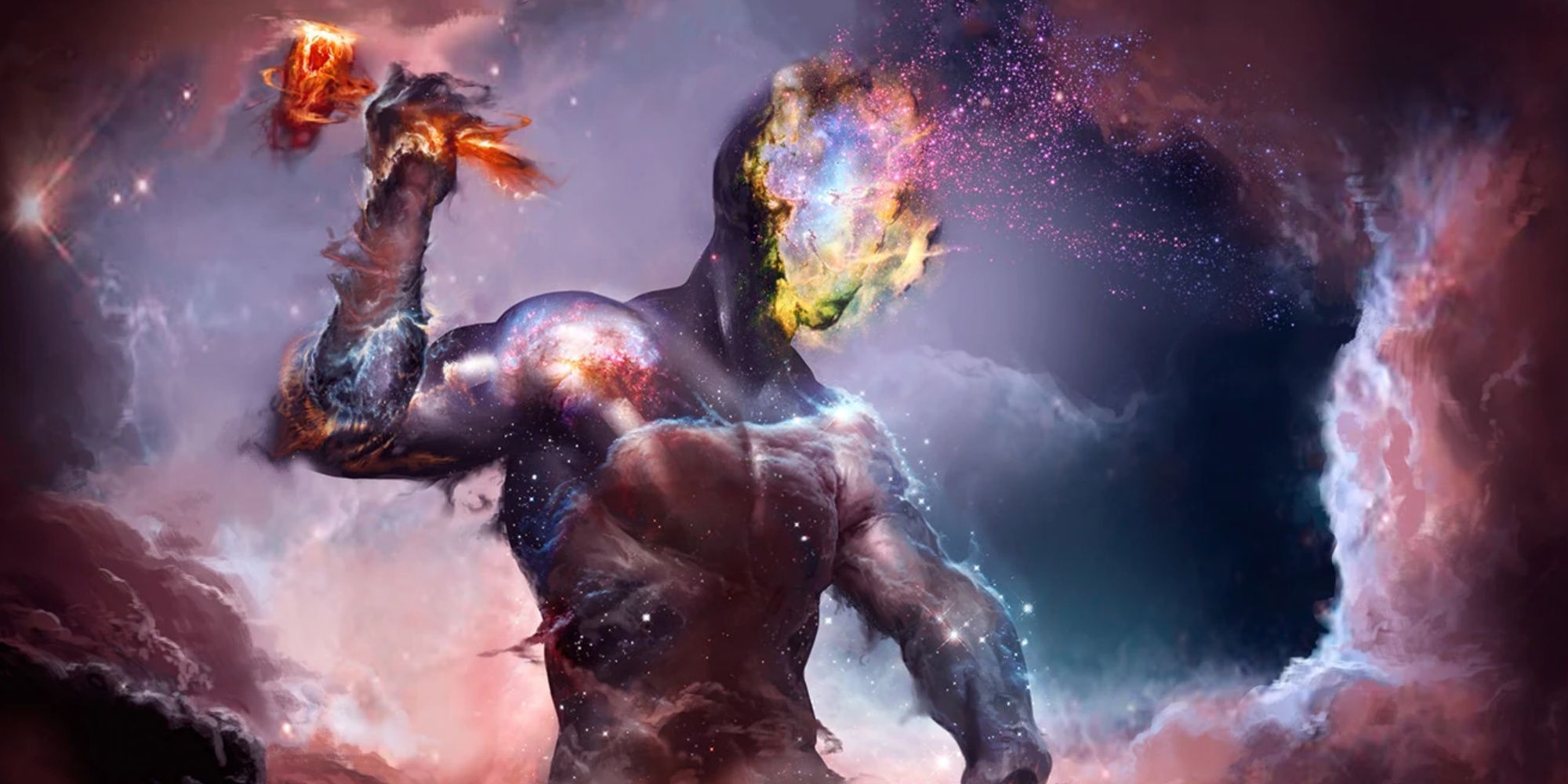
The Dwarves of the Lord of the Rings are a beloved staple of the franchise, with Gimli and the Dwarves of The Hobbit trilogy holding it down for fans. The Dwarves of Middle-Earth are an interesting race because, unlike Men and Elves, they weren’t created by Illúvatar. Instead, the Dwarves were made by Aulë, the Vala of smithery and technology. Aulë saw the Children of Illúvatar when the Valar were singing the creation song, as outlined in the Ainulindalë, and decided that he wanted to create beings of his own because he couldn’t wait for the elves to wake up so he could teach them his craft.
So, in secret, Aulë created the Dwarves. He created the forefathers of the Houses of the Dwarves and hid them. Illúvatar knew all, though, and confronted Aulë about creating life before Illúvatar’s chosen creations had awakened on Middle-Earth. Aulë prepared to destroy the Dwarves, who began to cower from his hammer, something they hadn’t done before. Illúvatar brought them to life, telling Aulë that he knew and planned for everything, incorporating the Dwarves into his creation. Aulë was one of the more powerful Valar – Sauron served him before joining with Melkor – and his place as the creator of the Dwarves made him very important to the cosmology of Middle-Earth.
Ulmo Always Looked Out For Middle-Earth
The Vala Over the Sea Counseled Middle-earth’s Inhabitants
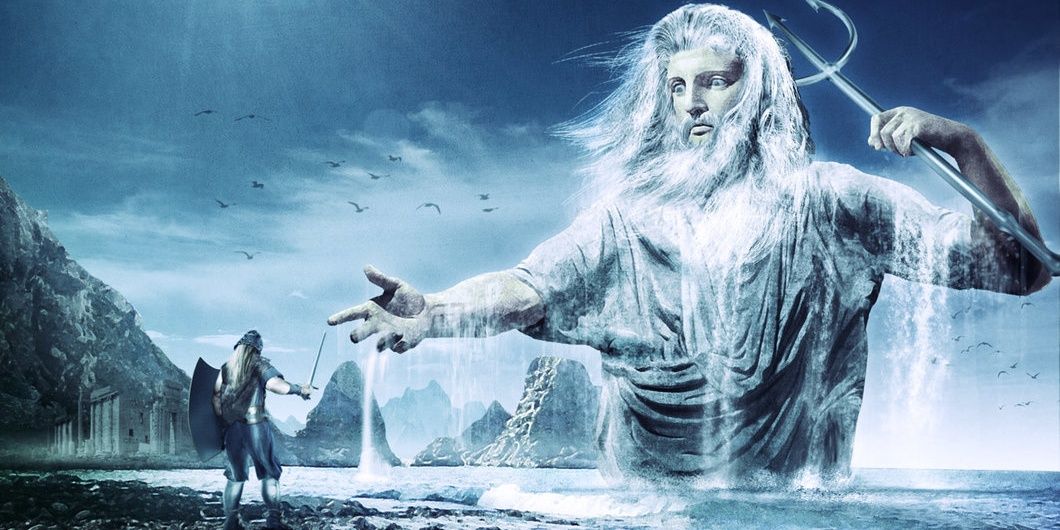
The Valar saw the world in the Song of Illuvatar and grew to love it, with some going down to Middle-earth to shape the world and guide its inhabitants. Ulmo was the Lord of the Waters, who controlled the seas of Middle-Earth. Unlike the other Valar, Ulmo didn’t just hang out in Valinor but was constantly out in the waters of the world. This caused Ulmo to care for the world in a less abstract way than the other Valar.
Ulmo always drove the Valar to action to protect the world, while also helping position heroes like Turgon and Tuor to help turn the course of Middle-Earth history in the First Age. The sea wasn’t exactly an important part of Lord Of The Rings, so Ulmo played little to no role in the events of the Third Age, much like the majority of the Valar. However, in the First and Second Age, Ulmo was easily among the most important Valar in the circles of the world. Without Ulmo, the forces of darkness would have long taken everything but Valinor, and even that wouldn’t have stood long.
Yavanna Loved The Forests And Gave Them Protectors
She Made the Ents With Illúvatar’s Permission
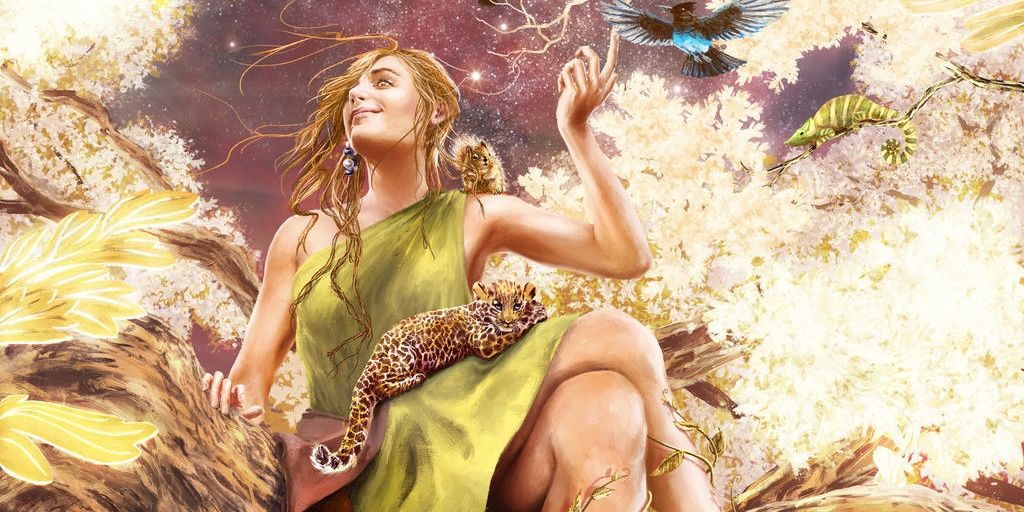
So, Yavanna thought of the Ents and the Entwives, the Shepherds of the Forest, who would protect the trees. Illúvatar allowed this creation, as it was something he already knew was going to happen, but much like with the Dwarves, forbade the Ents to awaken before the Children of his choosing. Yavanna’s creation of the Ents was very important to the history of the Third Age, as without them the power of Saruman never would have been broken.
Varda Elentari Was the Queen of the Stars
As Wife of Manwë, She Was Queen of the Valar
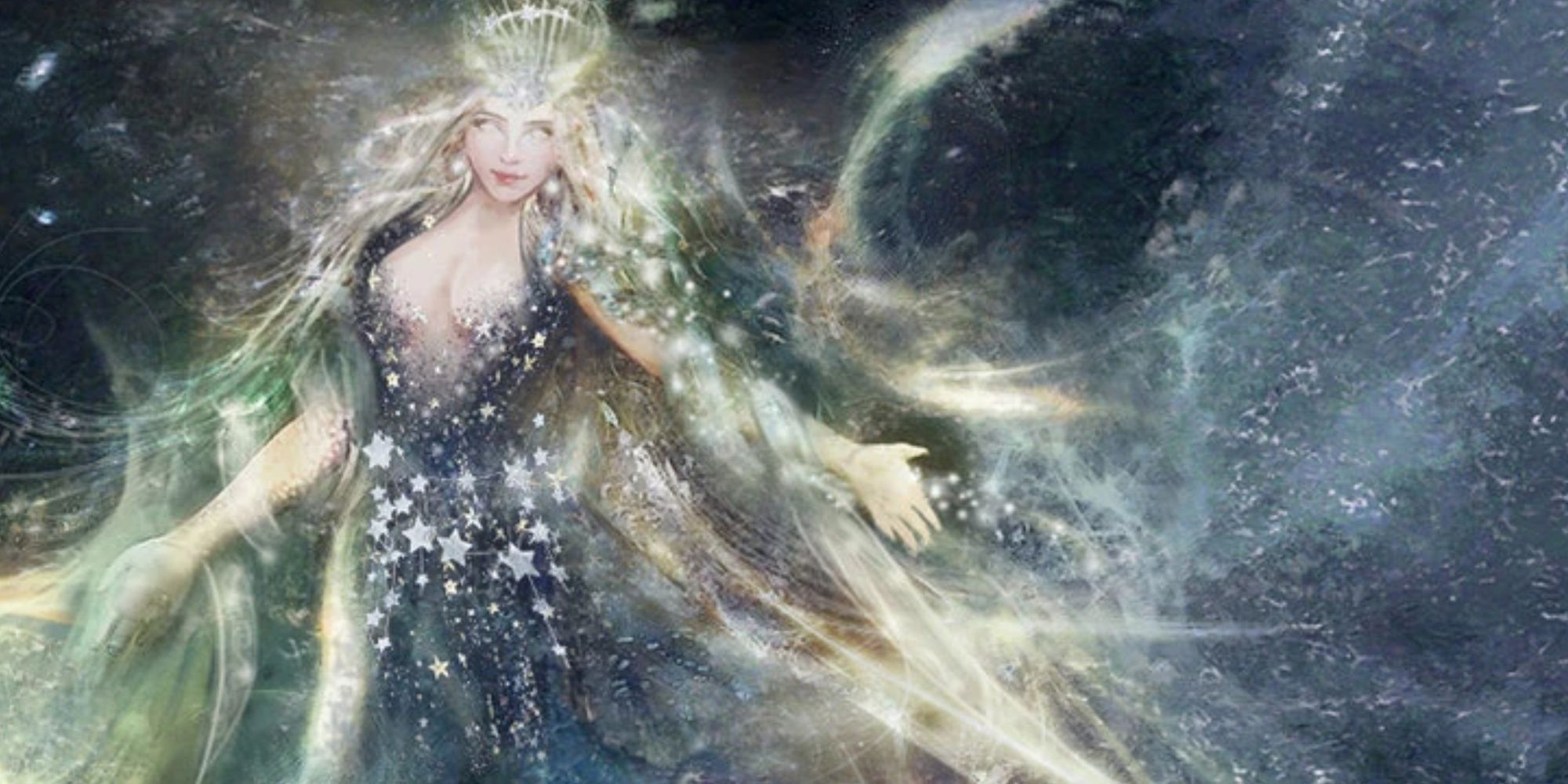
In book version of Lord Of The Rings, Frodo and Sam come across some Elves moving through the Shire to get to the Grey Havens, where they will leave Middle-Earth and go to Valinor. The two Hobbits spend the night with the Elves and readers learn of A Elbereth Gilthoniel, a song about the Vala who is the Queen of the Stars and beloved of the Elves. This was Varda Elentari, the wife of Manwë, the Vala of the stars. Since Manwë was the head of the Valar, Varda was their Queen.
Varda played a role in the creations of the Pillars, the Two Trees, and the Sun, Moon, and Stars of Middle-earth. She was most revered by the Vanyar, the kindred of Elves that never left Valinor after arriving, but all Elves revered her and the stars. The Elves awakened to a world lit only by the stars, which they would call the lamps of Varda. Lord Of The Rings created many fantasy tropes, and Varda would inspire many goddesses in later fantasy works by other authors. All mention of her was scrubbed from the movies because the scene where Sam and Frodo meet the Elves in the Shire was cut.
Tulkas Was the Most Physically Powerful Valar
He Was Also the Most Jovial
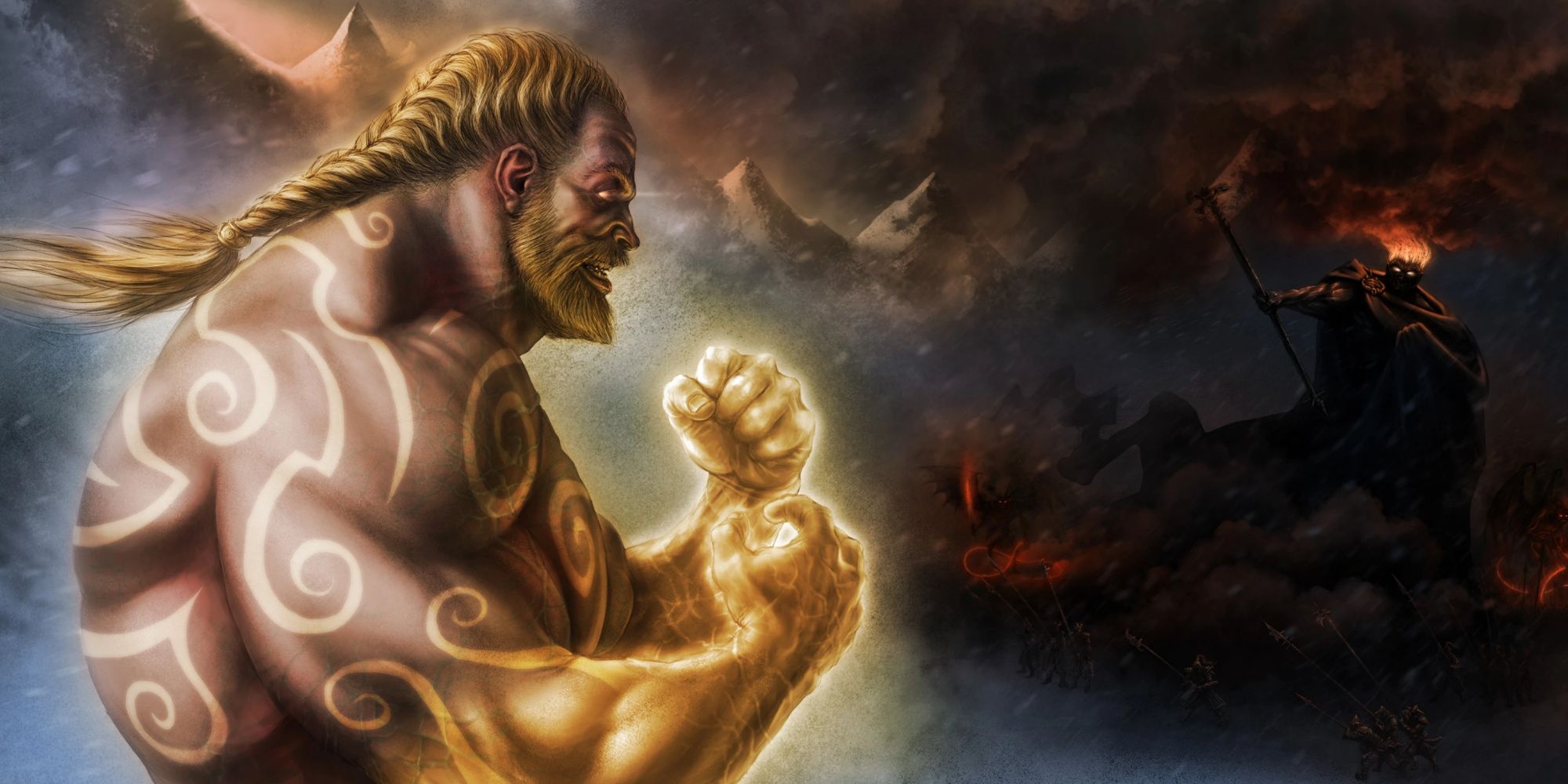
The Silmarillion is a treasure house of story, introducing the Valar and the creation of Middle-earth to readers. The book outlined the war against the first Dark Lord Melkor, the most powerful Valar that Illúvatar created and one who wanted dominion outside the order of things. During the first war against Melkor, before the awakening of the Children of Illuvatar, a Vala who hadn’t come to Middle-earth decided to intervene in the war, his hearty laugh echoing through the firmament as he strode forth to tackle Melkor. Literally.
Tulkas was the strongest of the Valar, and he wrestled Melkor down, allowing the other Valar to bind him in chains. Tulkas then threw him beyond the circles of the world, where Melkor would serve a sentence of exile before being allowed to return. Tulkas loved contests of arms and was known for his boisterous and happy nature, although he always clenched his fists upon the return of Melkor to Valinor, always ready to smack him around. Tulkas was a background Valar after this but is still one of the cooler members of this pantheon.
Námo Was Known As Mandos
He Was the Doomsman Of The Valar
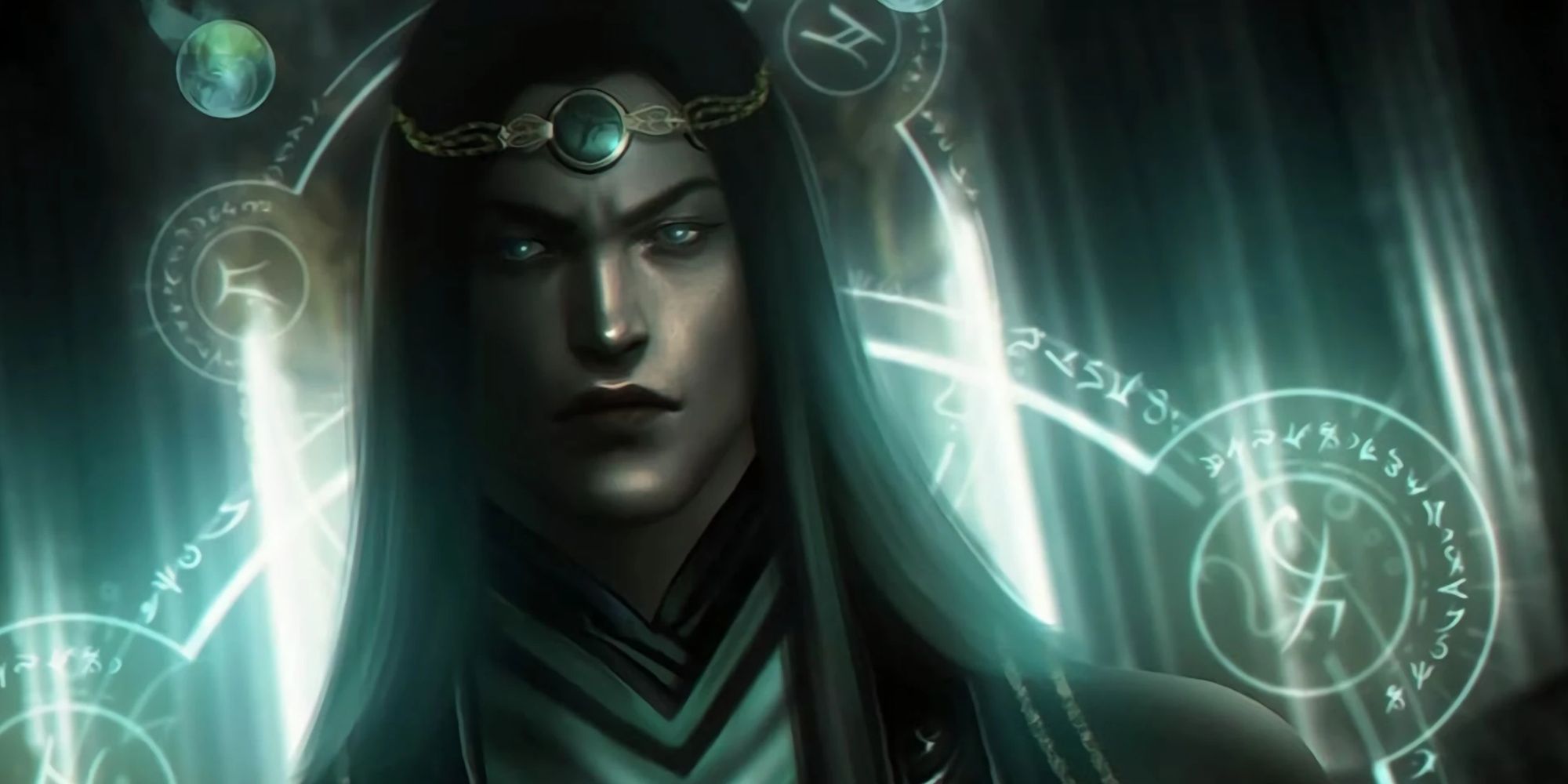
Death and endings are a very important part of Middle-Earth, so there is a Valar whose job is to control these things. That’s Námo, the brother of Irmo, whose realm is dreams and is often called Lorien. Námo is more commonly called Mandos, taking the name of the Halls of Mandos, where the spirits of Elves and Dwarves reside until the last battle of the world. Of the Doom of Men, as death among Men is called, Mandos knows little and merely watches as the spirits of Men move past his halls to their final reward from Illúvatar. The one exception to this was Beren. When he died, Lúthien appealed to Mandos with a song so beautiful that, seeking Manwë’s counsel, he returned Beren to life at the cost of Lúthien’s immortality.
Mandos is the giver of doom, who is basically a herald and prophet. Mandos doesn’t know the future word for word, but he knows the doom of many things and is often called upon to pronounce the sentences of the Valar. The most well-known of these was the Doom Of Mandos, given when the Valar appeared to Fëanor and the rebellious Noldor Elves who left Valinor to retrieve the Silmarills from Melkor. It told them the sorrows of the years ahead and that the Valar barred them from Valinor. Mandos had little to do with the world by the Third Age, but his place in the world was extremely important.
Tom Bombadil Was Left Out Of The Movies
His Absence Angered Many Book Fans
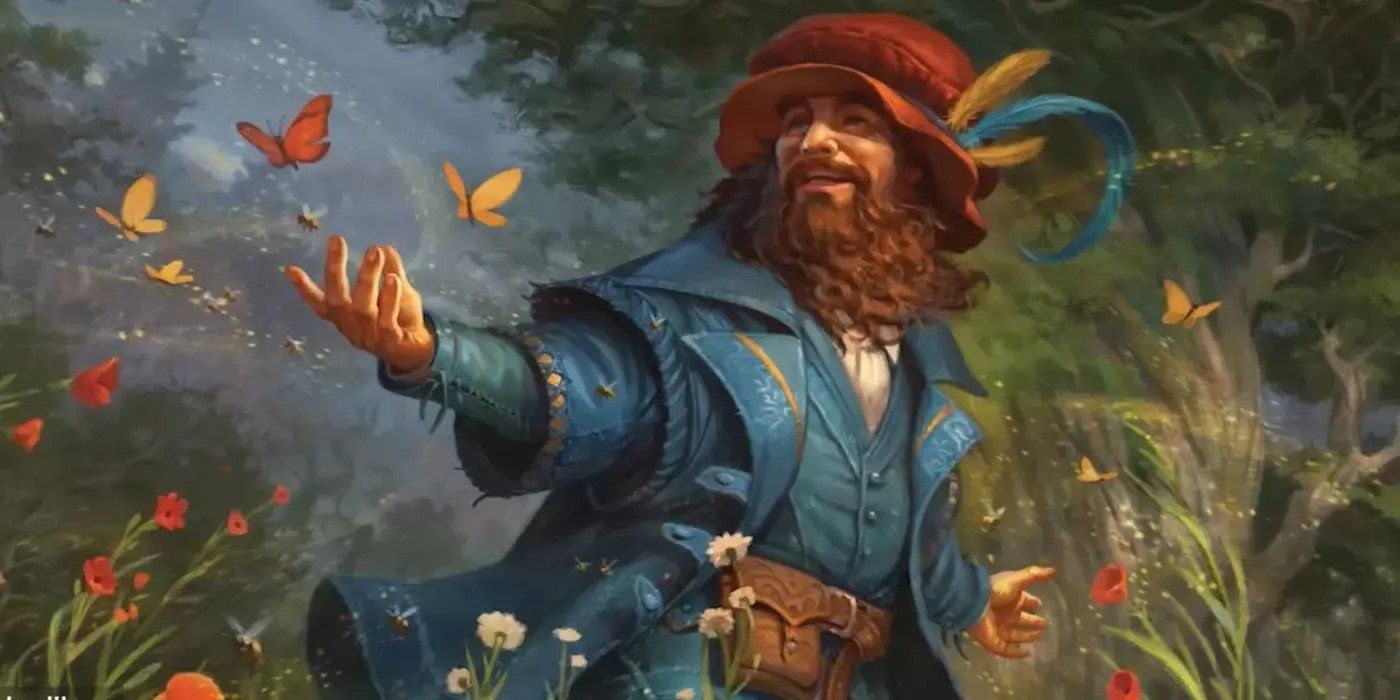
Lord Of The Rings is an epic work and contains many odds and ends. One of these that fans either completely love or hate with all their heart is Tom Bombadil. Sam, Frodo, Merry, and Pippin first encounter Tom in the Old Forest, an ancient forest outside the Shire. The four Hobbits are bewitched by the evil Old Man Willow and Tom Bombadil comes and saves them, using the magic of his songs to break Old Man Willow’s spell. Tom Bombadil then brings the Hobbits to his home where he lives with his wife Goldberry, the River’s Daughter. Tom is immune to the effects of the Ring and protects the four Hobbits in the night from the spirits of the ancient forest. He also saves them from the spirits of the Barrow Downs after they leave him.
Tom Bombadil is later discussed at the Council of Elrond. No one knows what he is, beyond being the Master of the Old Forest, something he tells the Hobbits himself, and the Oldest. During the Council, they discuss giving Tom the Ring, but fear that he would lose it because it doesn’t affect him. They believe that he could resist Sauron’s power but that he would fall once the Dark Lord surrounded his lands. Tom Bombadil is immensely powerful in the bounds of his land. Lord of the Rings is full of ancient characters, but few can match Tom. While his chapters are a bit silly, they show the magic of Middle-Earth and have some brilliant songs. He’s a beloved book character that many wanted in the movies, and these fans were quite disappointed when he didn’t show up.
Ungoliant Gave Readers a Taste of Cosmic Horror
Shelob Was The Last Child Of Ungoliant
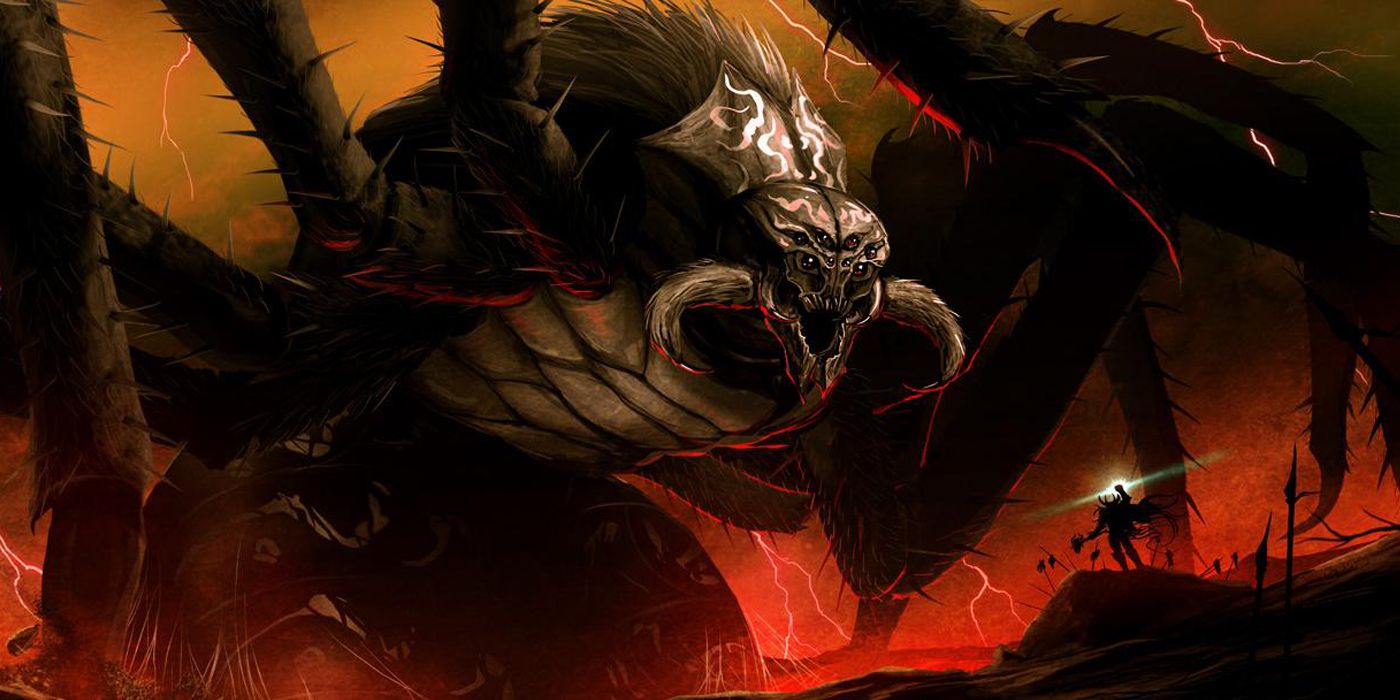
Melkor’s time in Valinor was characterized by his greed, especially for the Silmarills, which were made from the light of the Two Trees. Melkor wanted to destroy Valinor and while he was out in the Void, he learned of ancient powers of darkness on Middle-Earth. One of these was Ungoliant. Ungoliant lived in the darkness of the mountains of Valinor, a monster of profound hunger and darkness who took the form of a spider. When Melkor planned his attack on Valinor, Ungoliant was a key part of the plan. Together, they destroyed the Two Trees, with Ungoliant sucking the very light from them before attacking Fëanor’s armory and stealing the Silmarills.
Melkor promised Ungoliant that she could devour everything she wanted of what the two of them stole. Melkor held back the Silmarills from her, though, and this caused the two beings to fight. Ungoliant summoned her spider children, and Melkor fought back with the help of Balrogs, escaping Ungoliant and fleeing to Middle-Earth. Ungoliant shares much in common with the elders of Lovecraft, a bit of monstrous cosmic horror in Middle-Earth. She was also the forebear of Shelob, the spider that Sauron used to guard one of the approaches to Mordor.
Manwë is The King Of The Valar
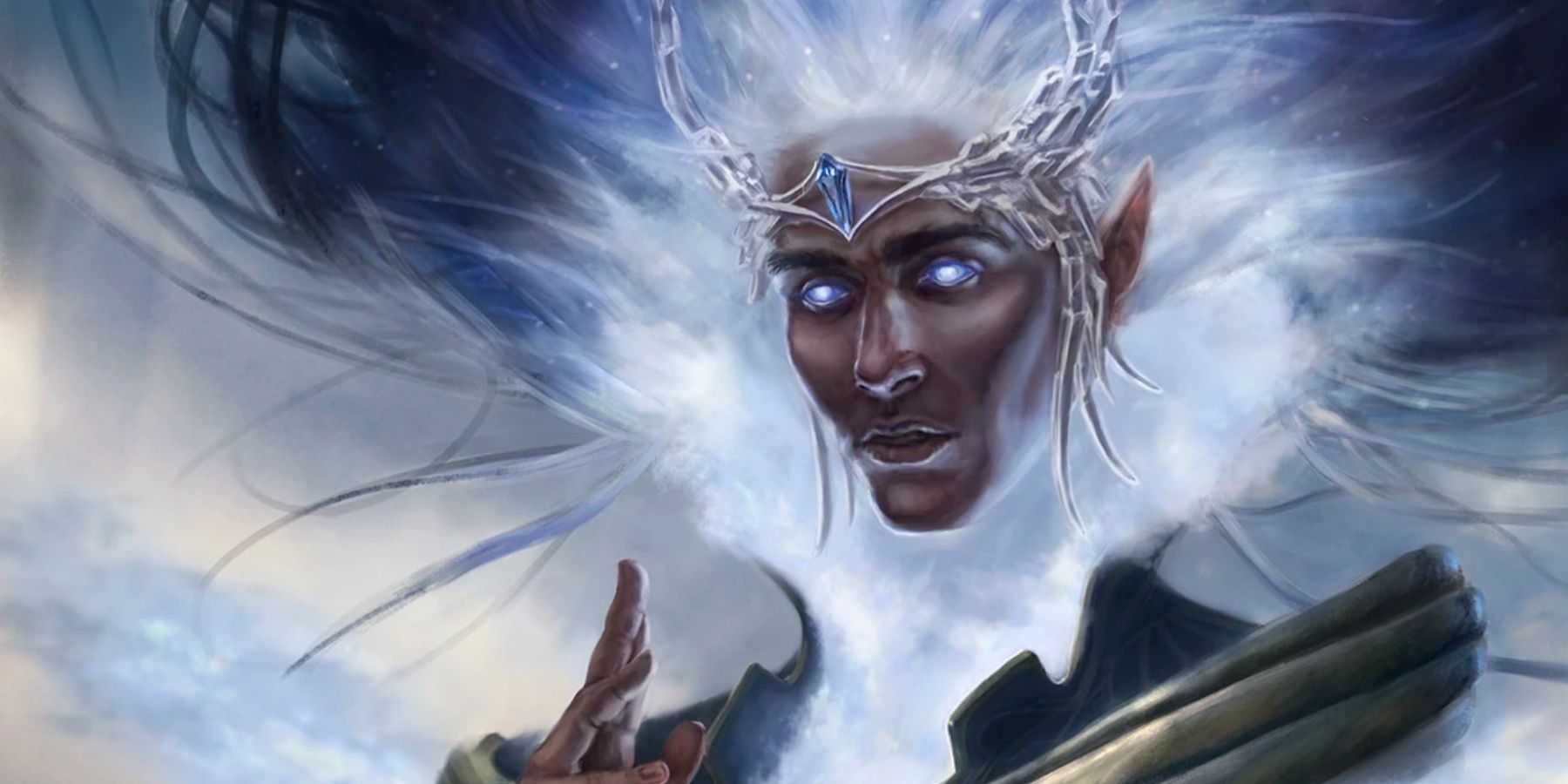
The Song Of Illúvatar told the story of the world, enthralling the Valar who sang it. One of these was Manwë. Among the Valar, Manwë was the second most powerful after Melkor. Unlike Melkor, Manwë was faithful to Illúvatar, desiring not dominion over Middle-Earth but to be its shepherd. Manwë led the Valar to Middle-Earth and served as their king, doing everything he could to make sure the history of the world matched what he had heard in the Song Of Illuvatar. Manwë was a key player in The Silmarillion. An interesting thing about Manwë is that he couldn’t understand evil. Manwë’s heart knew nothing of it or greed, so he truly believed that Melkor could change and become more like him since the two of them were brothers in the mind of Illúvatar.
This caused much heartache, and the rebellion of the Noldor caused Manwë to curse that kindred of Elves. Manwë seemed disconnected from the sorrows of the Elves and Men of Middle-Earth, but he knew all that he needed to know of the mortal lands, as Manwe was the Lord of the Eagles, who brought him information and did his bidding, like when they allowed Húrin and Huör to learn the location of the hidden city of Gondolin, something that would later play a role in the defeat of Melkor. The Eagles remained a powerful part of Middle-Earth and played their roles in the wars of the Third Age, all acting under Manwë’s orders.
Melkor Is The Greatest Enemy Of Middle-Earth
Later Called Morgoth, He Sought To Destroy the Elves
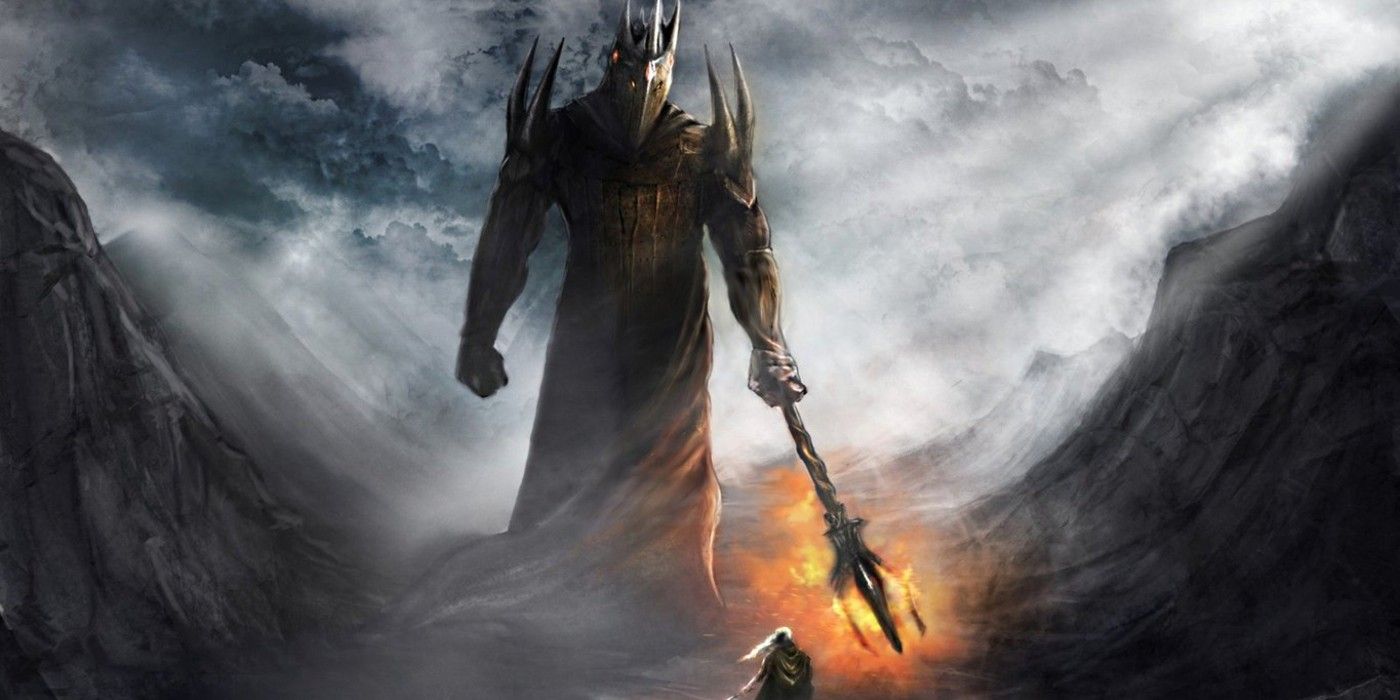
This remained his name throughout the centuries of wars against the Elves, Men, Dwarves, and the Valar. Melkor created the Orcs, the Trolls, and the Dragons. He perverted many Maiar to his cause, with some becoming Balrogs, and Sauron, formerly a servant of Aulë, becoming his second in command. Melkor almost destroyed everything, but thanks to Eärendil, a half Man/half-Elf who was the father of Elrond and Elros, the world was saved when he convinced the Valar to intercede. The Host of the Valar tore through Melkor’s forces like a blazing wind, and Tulkas again wrestled him to the ground, taking his Iron Crown and making it into a binding. Melkor was then thrown outside the circles of the world.


